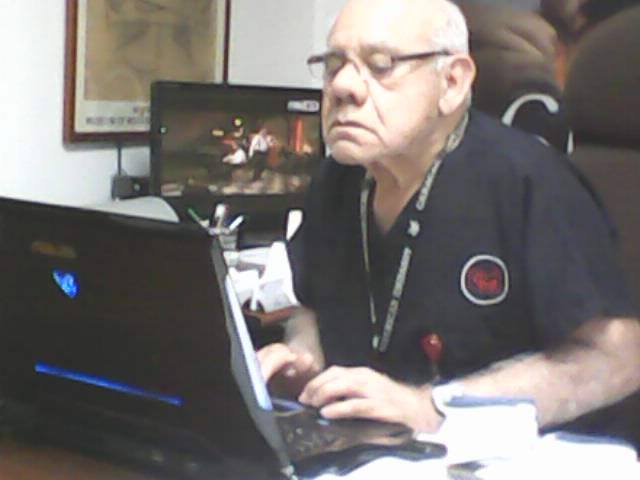martes, 31 de marzo de 2015
domingo, 29 de marzo de 2015
sábado, 28 de marzo de 2015
domingo, 22 de marzo de 2015
sábado, 21 de marzo de 2015
viernes, 20 de marzo de 2015
Bach: A Passionate Life
MISA CATOLICA EN B MINOR DE BACH ESCRITA POR UN NO CATOLICO PARA LA IGLESIA CATOLICA CON MUCHA TINTA NEGRA CONFIRMANDO LA CREACION GENIAL DE LA MATERIA A TRAVES DEL BOSON DE HIGGS-ENGLERT CONSIDERADA POR LA CRITICA AUTORIZADA SUIZA EN 1934 COMO LA MAS GRANDE OBRA CLASICA ESCRITA EN TODOS LOS TIEMPOS. CONFIRMA QUE EL ARTE NO ES UN DON DIVINO SINO OBRA DE LA INTELIGENCIA Y LA INTERACCION DE LA MATERIA EXISTENTE.
BOSON DE HIGGS-ENGLERT.PREMIO NOBELDEFISICA 2013. INGLATERRA-BELGICA. AMBOS PROFESORES ESTAN VIVOS. BACH ES UN ADELANTADO,UN GENIO DE LA MUSICA Y DEL HOMBRE MEDIEVAL.
jueves, 19 de marzo de 2015
miércoles, 18 de marzo de 2015
sábado, 14 de marzo de 2015
miércoles, 11 de marzo de 2015
Bach - Mass in B minor BWV 232 (Karl Richter, 1969) - 1/14
Cuando Rossana Rossanda declaró en Italia que EL CAPITALISMO SE VIENE ABAJO, se refería a LAS MAFIAS Y EL VATICANO.
BACH: escribe la mas famosa pieza musical sacra de todos los tiempos y lo hace para luchar y defender el mundo del vicio, las mafias y la intolerancia religiosa.
lunes, 9 de marzo de 2015
sábado, 7 de marzo de 2015
SKOLKOVO FRAUD. RUSSIA´S FRAUD.
Medvedev’s Fraud at Potemkin Skolkovo
Hero reporter Yulia Latynina, writing in the Moscow Times:
On Dec. 14, the day before a Moscow court was supposed to issue the verdict against former Yukos CEO Mikhail Khodorkovsky, President Dmitry Medvedev attended the “Go Russia!” innovation forum at Skolkovo to see how the modernization process is coming along. I must say that modernization is going full speed ahead — at least in and around Skolkovo.
First, the commuter rail station that will serve the future technopark was renamed from the obscure “Vostryakovo” to the much more fitting “Skolkovo.” And from that station it is a rigourous 30-minute trek through the woods to the site of the future Innovation City.
Second, the Skolkovo Highway has been sealed off. In the past, drivers caught in nearby traffic jams could detour along the Skolkovo Highway. But after concrete barriers were installed, motorists drove around them and continued on unpaved ground — that is, until the authorities completely sealed off the entire perimeter, bringing all detours to a halt.
Then, on a completely deserted stretch of highway near the Skolkovo School of Management, the authorities built a two-level interchange so that nothing could stop Russia from racing full speed into its innovative future.
What great examples of Medvedev-style modernization: close off a vital highway when traffic jams were already out of control and then build an overpass where it is absolutely unnecessary.
But Medvedev didn’t stop there. He was determined to create an even more fitting symbol of Russia’s backward approach to modernization. The concrete barriers were removed for his visit to Skolkovo.
When the president’s convoy rolled into the village for his grand visit, not a single barrier could be found. They were hauled away. The road was lined at 100-meter intervals with traffic policeman clad in yellow and numerous police cars. And what a road it had suddenly become — sparkly clean and partially laid with fresh asphalt that served as a nice embellishment for a large tented pavilion, which Medvedev had apparently needed as a rest stop on his tiresome journey from Rublyovka to Skolkovo. Go Russia!
But that’s not all. Right after the president’s cavalcade left the village, the concrete barriers were back in place, and the pavilion was gone the next day. The “fresh asphalt” in front of the pavilion turned out to be nothing more than wooden boards that were covered with Ruberoid roofing material. The whole episode was like a scene out of the book “The Autumn of the Patriarch” by Colombian novelist Gabriel Garcia Marquez in which Americans pack up their officers’ cottages to the last board and bolt and ship them home in containers, even rolling up and taking their neatly trimmed lawns with them.
Everybody knows that roads are sometimes closed when the president is passing, but this was the first time that a closed road was opened to allow him through.
By the way, when California Governor Arnold Schwarzenegger brought U.S. businesspeople to Skolkovo in October, they were shown two projects, neither of which had any prior connection to the Russian government: a Raman spectrograph and a receiver for terahertz radiation. Both projects are being developed in Chernogolovka, in laboratories run by the brilliant scientist and academic Vadim Kukushkin on financing provided by investor Ruben Vardanyan, head of Troika Dialog.
Fittingly, when the U.S. delegation flew on to Kazan after Skolkovo, they were shown the same two projects there. Apparently, Russia has such a dire shortage of innovation projects that they have to use the same ones over and over again. Go Russia!
martes, 3 de marzo de 2015
PERIODISMO LIT. GLOBAL LIT. JOURNALISM: TEMA DE JAZZ: El "uno" o la noche de los comunist...
PERIODISMO LIT. GLOBAL LIT. JOURNALISM: TEMA DE JAZZ: El "uno" o la noche de los comunist...: by(por) Carlos E. Mijares Poyer g'enero: cuento-ensayo (short-story-essay) NEW JOURNALISM, NUEVO PERIODISMO escrito: enero 199...
Suscribirse a:
Entradas (Atom)
